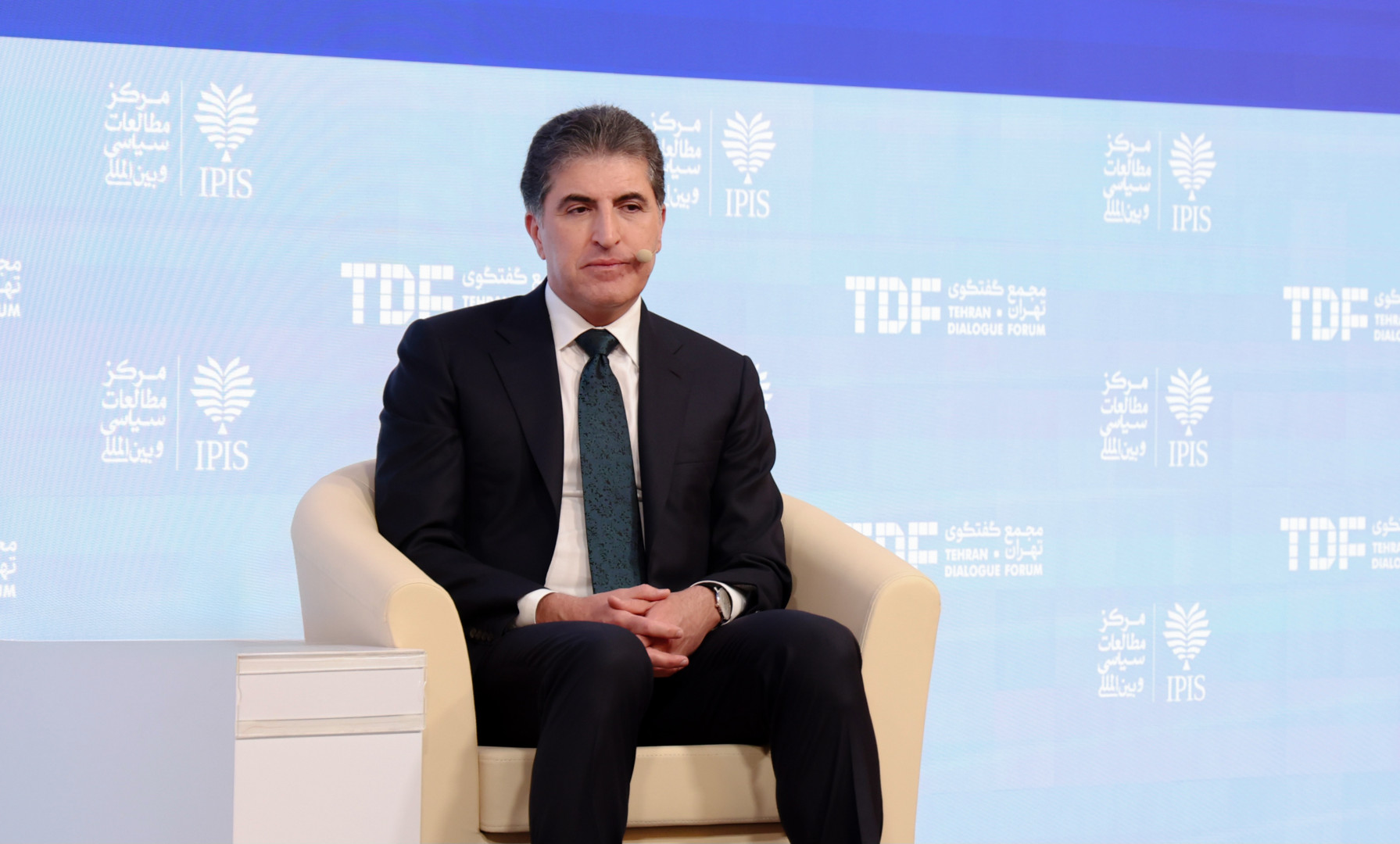
Tehran, Iran
May 18, 2025
His Excellency Mr. Nechirvan Barzani, President of the Kurdistan Region, participated today, Sunday, May 18, 2025, at the official invitation of the Center for Political and International Studies at the Ministry of Foreign Affairs of the Islamic Republic of Iran, in the Tehran Dialogue Forum. The forum included the participation of His Excellency Mr. Masoud Pezeshkian, President of the Islamic Republic of Iran, along with several senior officials and guests from various countries.
During one of the forum's special panel discussions, President Nechirvan Barzani answered a series of questions posed by the moderator. Below is the transcript of the questions and His Excellency’s responses:
Moderator: Very pleased to meet you, Mr. Barzani.
President Nechirvan Barzani: Thank you very much. And I apologize if my Persian isn’t very good.
Moderator: Your Persian is better than my Kurdish, and surely better than the Kurdish of the President of the Republic.
President Nechirvan Barzani: In truth, there’s no doubt about the President’s Kurdish fluency. Believe me, you cannot tell that he is not a Kurd when he speaks Kurdish.
Moderator: If you say so, then it’s true.
President Nechirvan Barzani: Yes, we confirm it. Even now, he was gracious enough to speak Kurdish.
Moderator: His Excellency, our President, speaks several languages. Thank you very much, Mr. Barzani, esteemed President of the Kurdistan Region of Iraq, for accepting our invitation. I am truly pleased to have this opportunity to speak with you. Less than a month and a half ago, I was your guest. I thank you greatly for your significant efforts in organizing this distinguished forum. I hope today's gathering will be positively evaluated and that we can highlight several key issues in this gathering of intellectuals and politicians.
President Nechirvan Barzani: Allow me to speak briefly in Kurdish. I am certainly very pleased to participate in this forum and extend my sincere thanks and appreciation to you for the invitation. We are very happy to be in Tehran. I will try to speak in Persian, and if I struggle, I will switch to Kurdish.
Moderator: You speak Persian very well.
President Nechirvan Barzani: If I may, regarding your visit to the Kurdistan Region a month and a half ago, I had wished to invite you, and I also mentioned this to Dr. Zarif beforehand.
Moderator: Mr. Barzani, changes in the region are occurring rapidly. During your recent talks in the Kurdistan Region, you noted that Iraq and the Kurdistan Region have a very important role in these changes, and you highlighted your success in foreign relations. What role do you envision for Iraq in the future of these regional changes?
President Nechirvan Barzani: Iraq is an important country in the region and it can play a significant role in the future. If you examine Iraq’s situation today compared to recent years, you’ll find that the biggest issue in Baghdad now might be traffic jams.
Iraq is transitioning from one phase to another. Politically speaking, if we talk about Iraq as a whole, we recently hosted the Arab League Summit in Baghdad. Given the regional situation, we believe it was a very successful summit, attended by our Arab friends and brothers from other countries.
Iraq is a country that has recently moved beyond war and many of its problems. It is now entering a new political phase that enables it to play a more influential and significant role in the region.
Iraq is very rich, both in natural and human resources, and with the right policies and a clear future vision, it can play an influential and important role in the region.
Moderator: How do you define the Kurdistan Region within Iraq?
President Nechirvan Barzani: The situation of Kurdistan—let me put it this way—before the Americans came to Iraq in 2003, we had this same status. The Americans told us that Iraq’s system of governance would change to a democratic and federal system, and we helped them remove Saddam from power. The system in Iraq is defined—if you look closely—as a federal system. Unfortunately, I must say we have not yet reached that point. Iraq is still very far from being truly federal. We discuss this with our friends in Baghdad. We say, we live in a geography called Iraq, and we need to define a model of governance that satisfies everyone. This model is defined in the Iraqi constitution, which 80% of the Iraqi people voted for. We in the Kurdistan Region see our future within this framework and are confident that if the constitution is implemented, Iraq will be able to resolve most of the current issues between the Kurdistan Region and Baghdad.
Don’t take this as a complaint because it is the truth, the way Baghdad deals with the Kurdistan Region is in no way based on federalism. Of course, I’ve told my friends in Baghdad that the problem is when you look at the Kurdistan Region, you see us as more than just a federal entity. This same discussion took place with Mr. Adel Abdul-Mahdi, who is here and was Prime Minister at the time. I told him that when you view the Kurdistan Region, you think we’re taking powers beyond what the constitution grants. We need to sit down honestly and find a meeting point to establish a new foundation for Iraq. This is possible and not hard to achieve. The time has come. I say that all the existing problems in Iraq are gradually being resolved. But the first step toward political stability is resolving the issue of federalism with the Kurdistan Region, completely.
Moderator: What is the Kurdistan Region’s role in developing relations between Iraq and Iran?
President Nechirvan Barzani: Our relations in the Region with Iran are historic. There are deep-rooted cultural, historic, and linguistic ties. We are neighbors. Economically, about 60% of the trade between the Islamic Republic of Iran and Iraq flows through the Kurdistan Region. We have very strong economic relations, and they’re improving daily. For example, we have another meeting next week, where governors from the Kurdistan Region and governors from Iran’s bordering provinces in Eastern Kurdistan will gather. They also have a visit to Tehran planned, and may meet the President.
We have always had cultural and historic relations with our neighbor. Whenever we have faced difficulties, Iran has supported us. For example, during the Halabja tragedy and the years of displacement that followed, and during the war against ISIS, Iran was among the first countries to assist us. In fact, General Qassem Soleimani was among the first to arrive in Erbil that very night when we faced significant threats. We’ve stated this publicly and clearly.
Our relations are positive in all areas. Following President Pezeshkian’s visits to Baghdad and then Erbil, we are now seeing the development of relations across the board—in politics, culture, academia, and trade. There has been tangible progress.
Moderator: You mentioned President Pezeshkian’s visit to Baghdad and Erbil. It seems that this visit marked a new chapter in the relationship.
President Nechirvan Barzani: No doubt about it. We’ve had ups and downs in our relations. In my previous visit to Tehran—before Mr. Pezeshkian became President—I met the late President Raisi and also met with the Supreme Leader of Iran, where we openly discussed many issues. The turning point in our relations came after my meeting with the Supreme Leader of the Islamic Republic, which strengthened our ties.
Dr. Pezeshkian said his first foreign visit would be to Iraq. I told him we would definitely invite him to Erbil. He had visited Erbil before, back when he was a university professor or President of Tabriz University. He was already familiar with Erbil at the time. I’m not sure if you were with him then?
Moderator: No, I wasn’t.
President Nechirvan Barzani: You weren’t, but our colleagues were. When the President came to Baghdad and Erbil, he spoke Kurdish in Erbil—fluently—and it amazed everyone.
Moderator: I saw that.
President Nechirvan Barzani: You saw it? He also asked me to speak in Persian, and I think he was a bit surprised that my Persian was good.
In my view, His Excellency’s visit, as I noted, following ours, had a direct and practical impact. The economic discussions and the upcoming meeting in Sanandaj are among the tangible achievements of the President’s visit.
The President truly believes in what he says—he believes we should cooperate in the region and work together. And we see that happening. Since he took office, we have seen steady progress in Iraq’s relations, especially with the Kurdistan Region. For example, one issue we’ve since organized better is the movement of Iranian pilgrims traveling through Kurdistan to Najaf and Karbala. After the President issued his instructions, we’ve seen progress on all of these fronts.
Moderator: Could the recent changes regarding the PKK mark the beginning of the end of the long-standing conflict? You know the Islamic Republic of Iran has had its security concerns in the past and has faced threats and attacks, which we shared with you. It seems that after Mr. Pezeshkian’s visit, we’ve made good progress in this area as well.
President Nechirvan Barzani: From a security standpoint, let me first say that we’ve made solid progress. We’ve established a mechanism for Baghdad, Erbil, and the Islamic Republic to work together. For us, the most important issue is this: we will not allow the Kurdistan Region to pose a threat to its neighbors, especially to the Islamic Republic. This is one of our core principles. In the Kurdistan Region of Iraq, and with Iraq’s cooperation, we’ve set up a mechanism and a trilateral committee that meets regularly. I also had some meetings in Tehran last night. We all know that we’ve made considerable headway in the security field so far, and we affirm that the territory of the Kurdistan Region has not and will not be a source of danger to the Islamic Republic of Iran.
Moderator: That’s a very clear message. What about the PKK?
President Nechirvan Barzani: Regarding the PKK, yes, there is a process that has begun in Turkey. In our view, this issue cannot be resolved through war and bloodshed. Our role in the Kurdistan Region of Iraq is one of assistance. We don’t interfere in the internal affairs of Turkey or any other country, but if we can help Turkey in this regard, we’re ready to do so.
That process in Turkey is serious. There’s the PKK on one side, the DEM Party on another, and Mr. Öcalan as a third key figure. These three are the pillars of the process currently underway. We have declared that we are ready to offer any support required of us; our role is a supportive one, and God willing, to help resolve the PKK issue and Turkey’s problems, because this issue cannot be solved militarily.
Moderator: Let me ask a non-political question: when you visit Iran, what attracts your attention the most—aside from the Persian language and shared memories?
President Nechirvan Barzani: It’s those very memories you mentioned. Iran was the country that opened its arms when we came as refugees. In fact, we weren’t even considered refugees—we were embraced as their own. We weren’t just guests—we were like family. Those memories we have with Iran are deep and unforgettable. At the same time, whenever I come to Iran, I always want to visit Azimiyeh in Karaj. We told our friends to include it in the schedule. We have so much in common. We always consider this country our home.
Moderator: Thank you very much. I can testify that you are one of the architects of the strong relations between these two countries. Thank you for your participation.
President Nechirvan Barzani: Thank you very much.
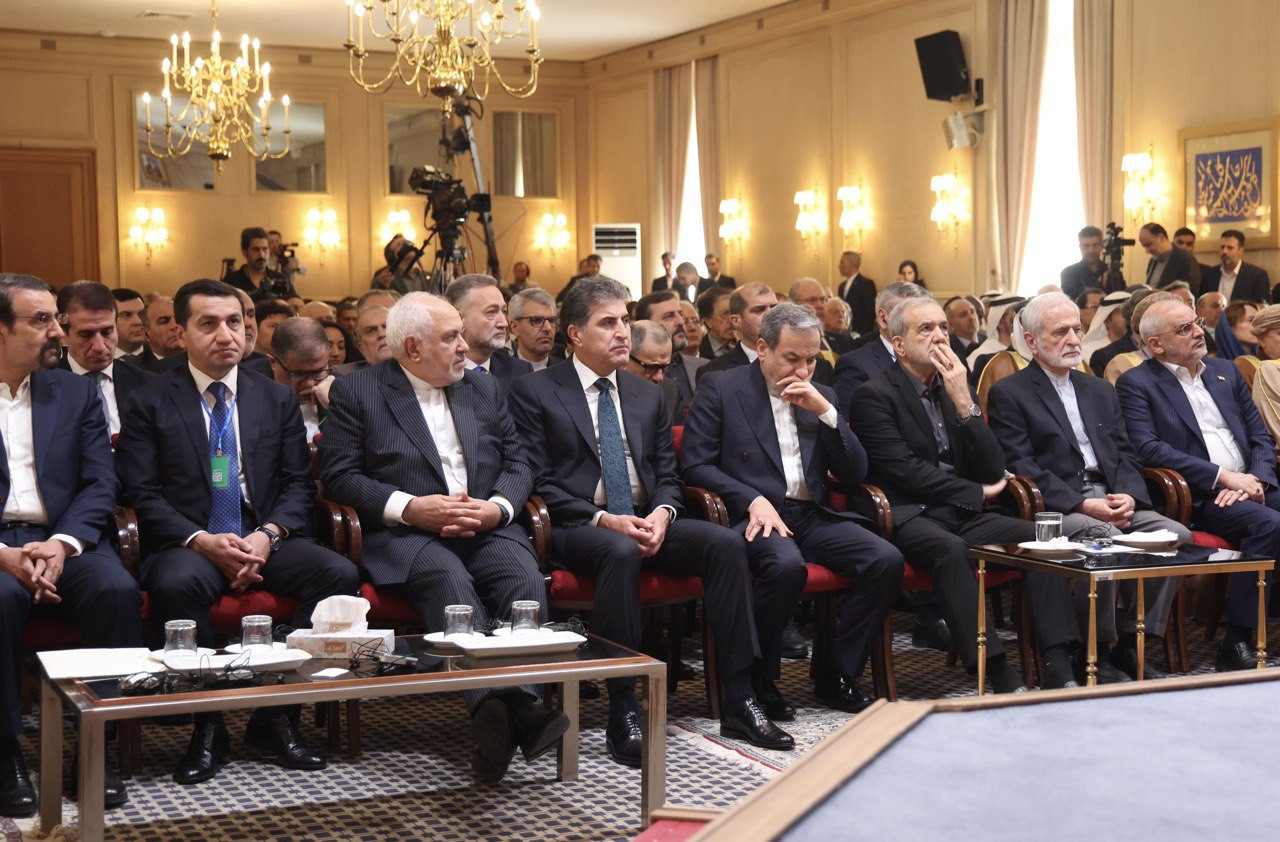

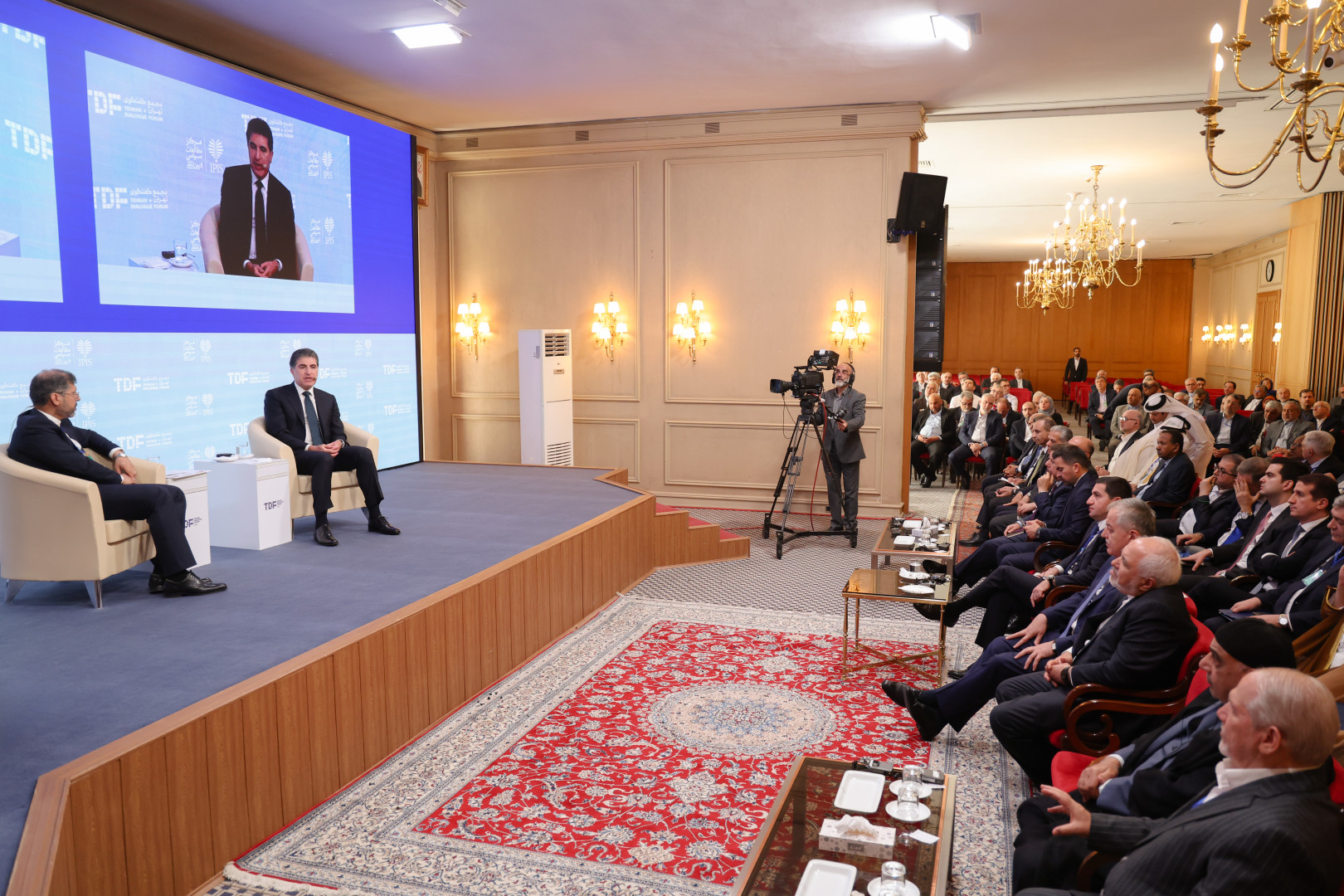
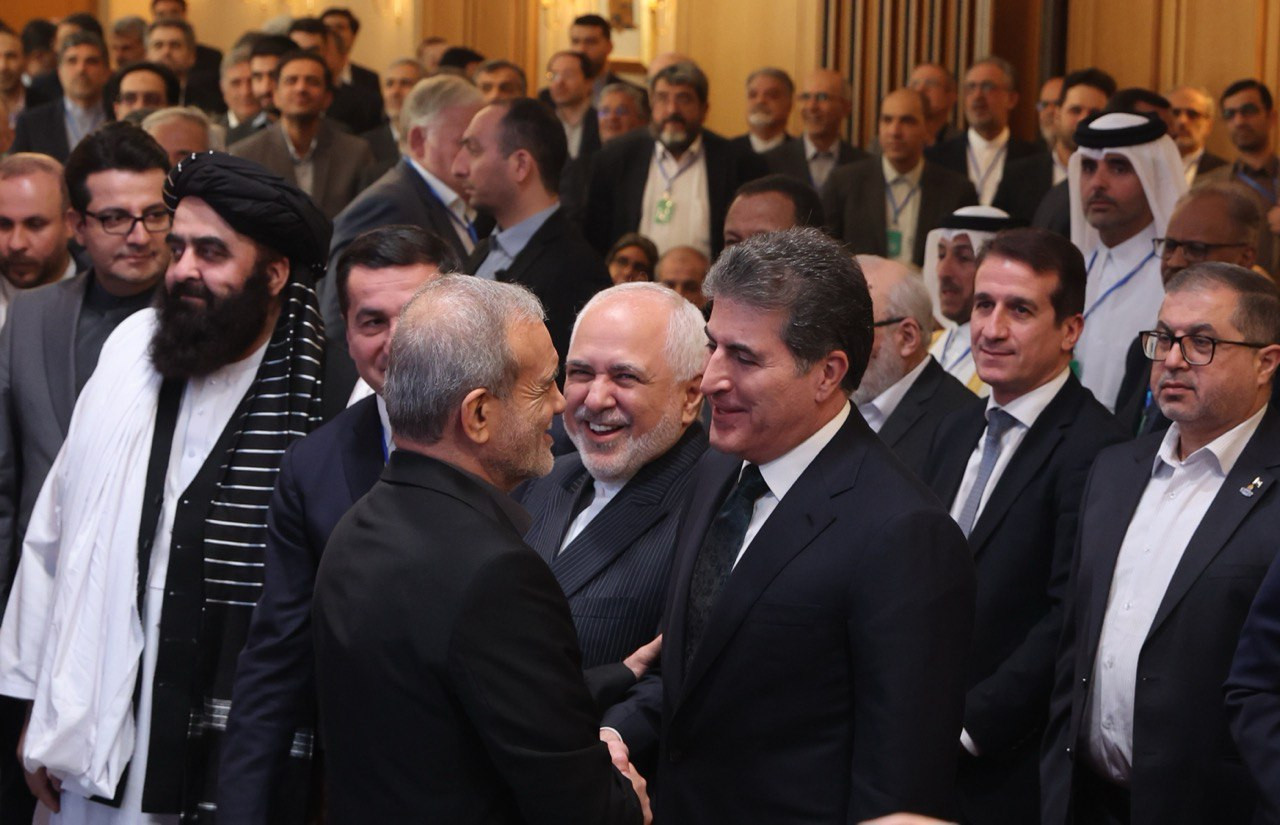
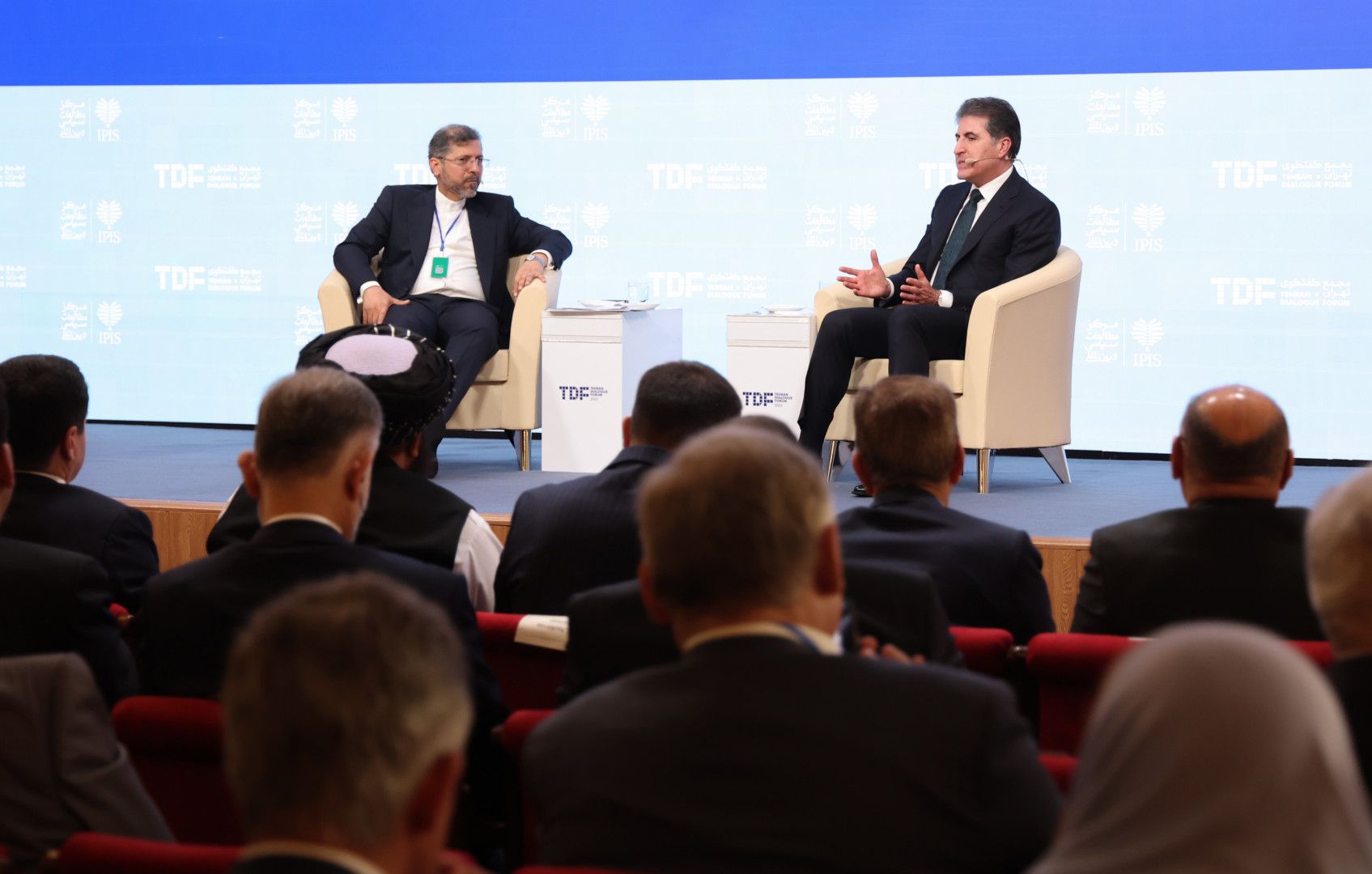





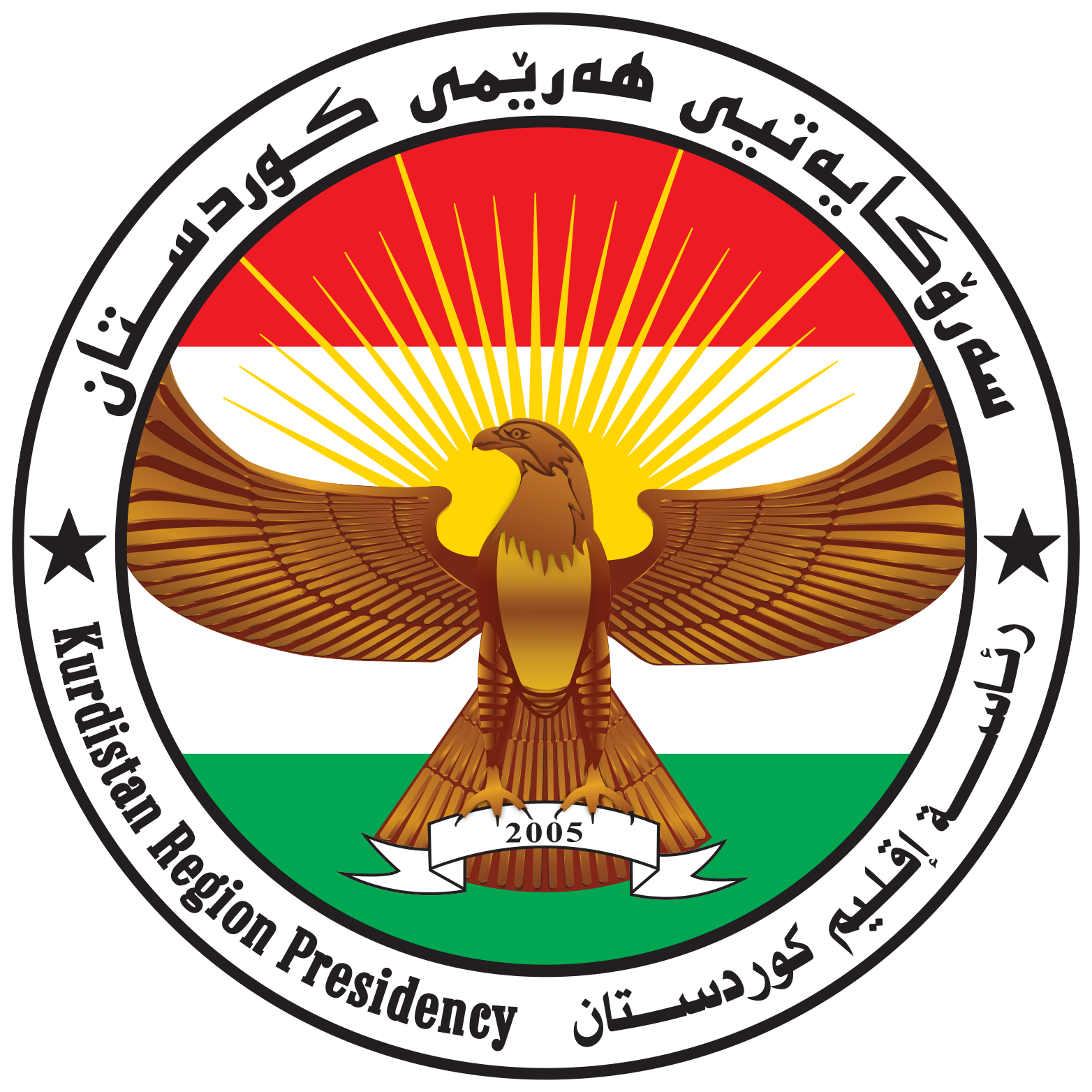

 پەرلەمانی کوردستان
پەرلەمانی کوردستان
